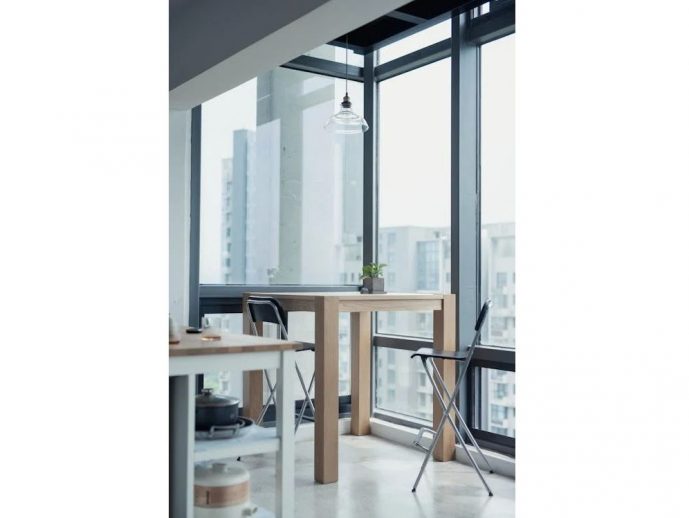Categories more
- Adventures (16)
- Arts / Collectables (14)
- Automotive (36)
- Aviation (10)
- Bath, Body, & Health (73)
- Children (6)
- Cigars / Spirits (30)
- Cuisine (16)
- Design/Architecture (17)
- Electronics (12)
- Entertainment (4)
- Event Planning (3)
- Fashion (42)
- Finance (8)
- Gifts / Misc (6)
- Home Decor (44)
- Jewelry (39)
- Pets (3)
- Philanthropy (1)
- Real Estate (12)
- Services (21)
- Sports / Golf (14)
- Vacation / Travel (60)
- Watches / Pens (14)
- Wines / Vines (24)
- Yachting / Boating (15)
Opening Up Atlanta Interiors with Custom Glass Panel Designs
Published
03/18/2025The interior design industry in Atlanta is shifting toward openness and functionality. Homeowners want creative solutions that blend spaces, making them feel larger while staying comfortable. Custom glass panel designs are becoming a favorite, allowing more light in and making small spaces feel bigger, whether in a cozy apartment or a modern home.
Glass panels can completely change how a space feels. Thinking about how they interact with light and layout, homeowners–especially when work with professional Atlanta glass services–can create inviting spaces that feel both open and private. These elements have a range of uses, showing how smart glass integration can reshape not just rooms but the entire living experience.
Redefining Small Spaces with Strategic Glass Panel Placement
Floor-to-ceiling glass partitions make small interiors feel more spacious while still separating different areas. This works especially well in loft-style apartments, where living, dining, and kitchen spaces naturally blend. The transparency brings in more light, reducing any feeling of confinement.
In narrow hallways, frosted or textured panels let sunlight in while keeping privacy intact, making the space feel more open. For townhouses, sliding glass walls improve airflow between rooms while still allowing separation when needed. Reflective glass panels also brighten up rooms that lack windows, making them feel lighter and more welcoming.
Expanding Indoor-Outdoor Connections with Oversized Glass Panels
Oversized glass panels create a seamless connection between indoor and outdoor spaces, letting in natural light and fresh air. This design makes a home feel more open, which is especially appealing in urban environments. Homeowners who add these panels often find that their living spaces feel larger and more inviting.
Retractable glass walls offer flexibility, improving ventilation during Atlanta’s mild seasons while maintaining energy efficiency with low-emissivity glass. Custom framing adds to the aesthetic, helping glass elements fit into the home’s existing style. In sunrooms, strategically placed dividers can separate climate-controlled spaces from outdoor areas while still feeling connected. To get the best effect, oversized glass panels should maximize both natural light and the outdoor connection without sacrificing comfort.
Incorporating Glass Panels in Commercial Spaces for a Modern Look
Frameless glass partitions give modern offices a sleek, open feel, balancing visibility and separation. Employees can interact easily while still having clearly defined workspaces, creating a mix of collaboration and focus. As more companies choose open layouts, productivity benefits from spaces that encourage communication while maintaining individual work zones.
Conference rooms with switchable glass walls allow for privacy when needed, making them adaptable for different types of meetings. Glass entryways with etched logos make a strong first impression and help reinforce a brand’s identity. In coworking spaces, soundproof glass panels support both teamwork and quiet concentration, while backlit glass feature walls create eye-catching designs in hospitality venues. Etched glass designs can add a personal touch, blending style and function.
Blending Modern Glass with Historic Homes
Adding glass elements to historic homes updates their look without losing their charm. Retrofitting vintage doors with glass inserts keeps their classic appeal while allowing more natural light in. This balance between old and new makes spaces feel warm, bright, and practical.
Replacing wooden panels with glass in darker hallways makes them feel more open and inviting. Stained or frosted glass is a great option for entryways, keeping with traditional Southern design. Black metal frames paired with original molding create a striking contrast, giving the space character. For a more seamless blend of eras, pivoting glass doors offer a functional upgrade that fits into a historic aesthetic.
Choosing the Right Glass for Style and Function
The right glass choice depends on both appearance and safety. Tempered glass is durable and impact-resistant, making it a reliable option for high-traffic areas. Laminated glass, which has multiple bonded layers, adds security and noise reduction, making it ideal for offices and city homes that need a quieter atmosphere.
For areas with lots of sunlight, tinted or reflective glass helps reduce glare and heat buildup, improving comfort and energy efficiency. Patterned or textured glass can add a decorative touch while softening bright light. Self-cleaning glass is a practical option for high-maintenance areas, cutting down on upkeep. The choice of glass finish should complement the surrounding design—matte glass works well in industrial spaces, while clear glass fits minimalist styles.
Glass panels can completely change how a space looks and feels, making rooms brighter, more open, and more functional. Floor-to-ceiling partitions help small spaces feel bigger, while oversized panels connect indoor and outdoor areas. Offices benefit from frameless glass walls, switchable privacy panels, and branded designs that keep things modern and professional. In older homes, adding glass updates the space without losing its charm. Choosing the right type—whether tempered for strength, laminated for noise control, or tinted for comfort—makes a big difference in style and function. With smart placement, glass can make any home or office feel more open, inviting, and practical, giving spaces a fresh and modern feel without sacrificing comfort.















